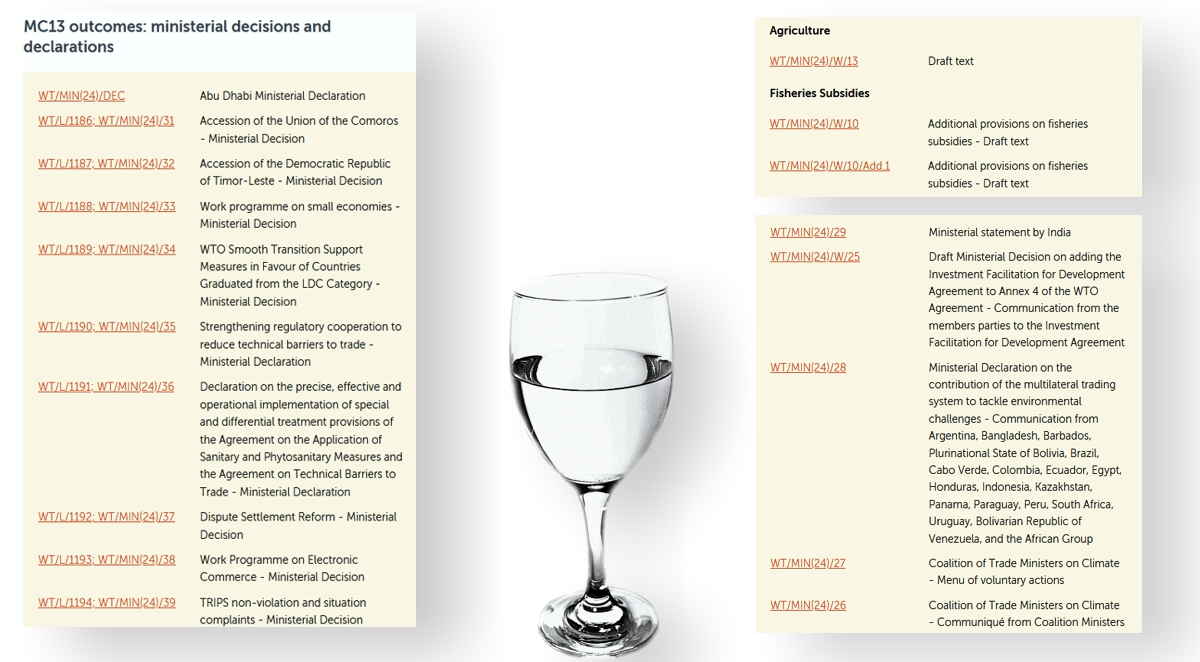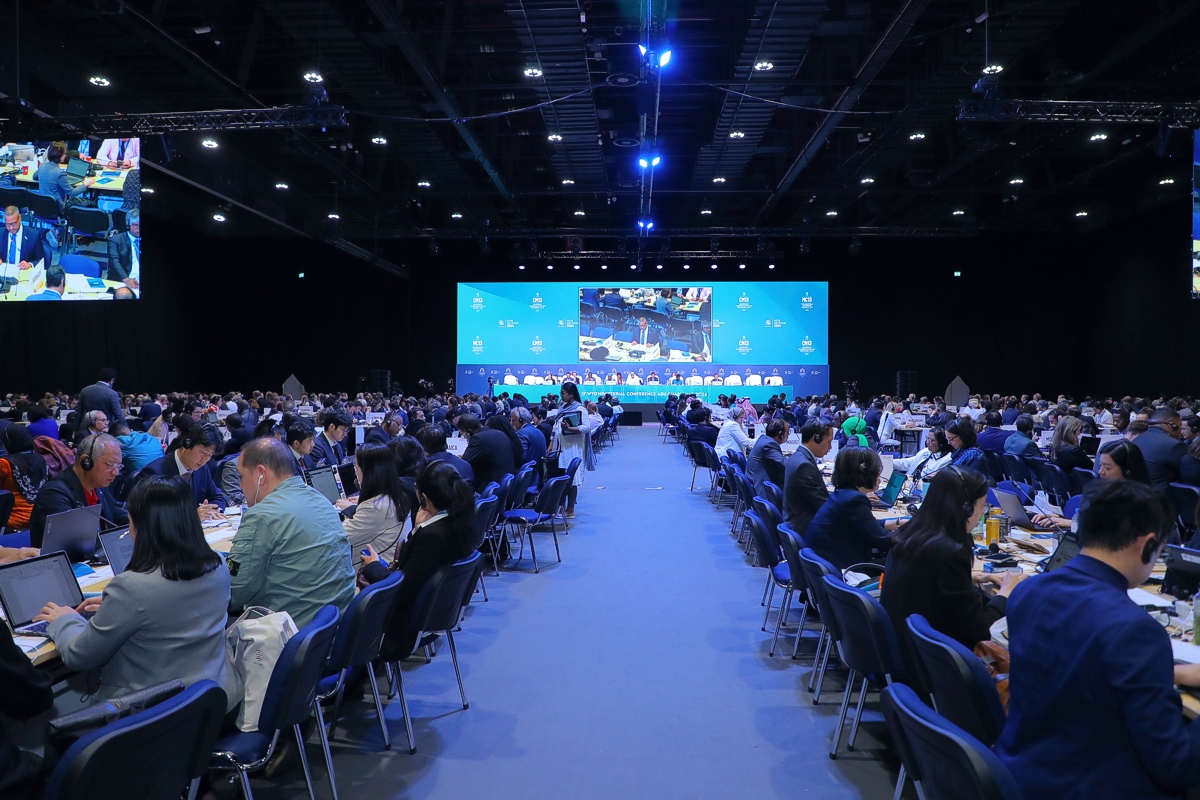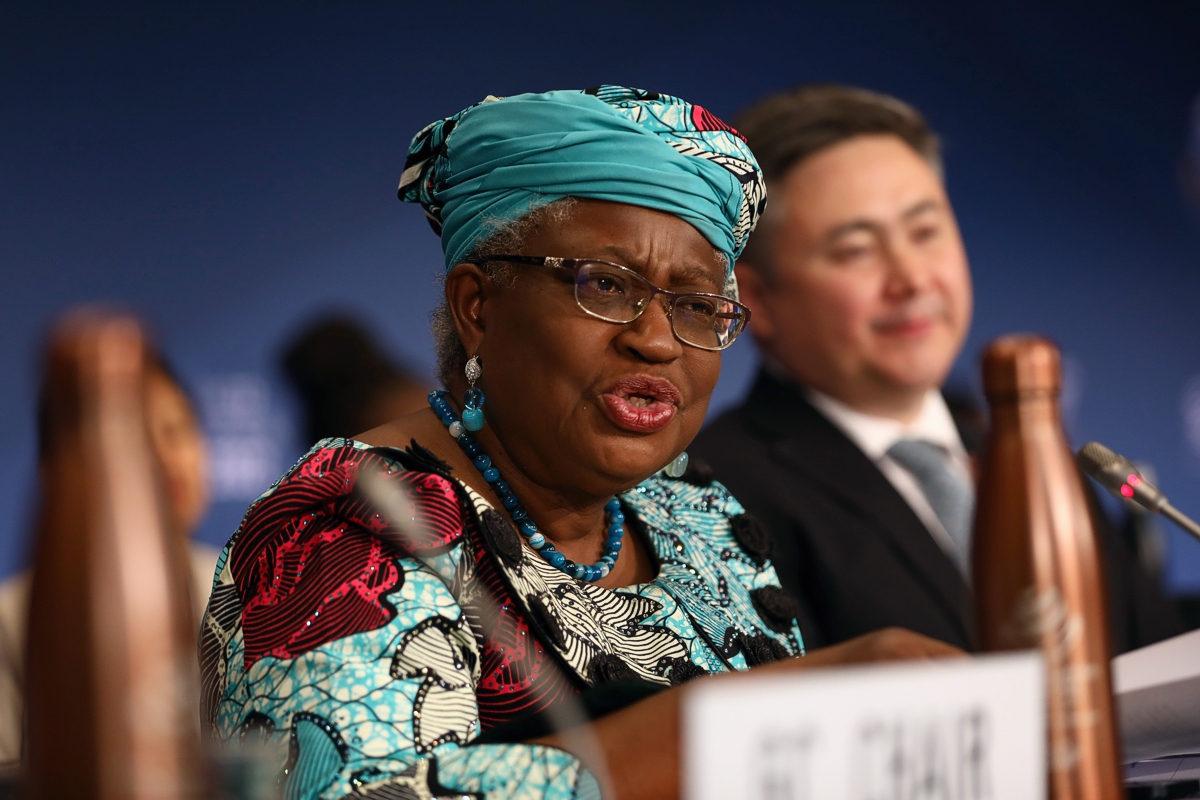SEE ALSO
After:
What next? Seven talking points after the conference
Before:
Cynics circle as another conference heads for small pickings
Definitely. Maybe. Unlikely. Who knows? Issues on the WTO agenda
By Peter Ungphakorn and Robert Wolfe
POSTED APRIL 5, 2024 | UPDATED APRIL 23, 2024
Judging by the WTO website’s coverage, the World Trade Organization’s Abu Dhabi Ministerial Conference was a success, albeit a qualified one, at least in WTO Director-General Ngozi Okonjo-Iweala’s assessments. Is this credible?
“Despite the more than challenging context, we concluded [the Ministerial Conference] with 10 consensus multilateral ministerial decisions and declarations,” she told ambassadors to the WTO on March 21. “That’s why I personally see the glass as half full.”
We, however, conclude that the glass is quite a lot less than half full.
![]()
Despite the more than challenging context, we concluded … with 10 consensus multilateral ministerial decisions and declarations. That’s why I personally see the glass as half full
— Ngozi Okonjo-Iweala
We looked closely at what was agreed in Abu Dhabi and what wasn’t, and we scored each issue. The results are below, a bit like the scorecards we produced after the last Ministerial Conference in Geneva in 2022, but slightly different.
And we believe over-selling the result may be unhelpful because it may encourage complacency. Members can and should do better. And they should start working on that now.
Continue reading “Scoring the Ministerial Conference results in the WTO director-general’s ‘half-full’ glass”











